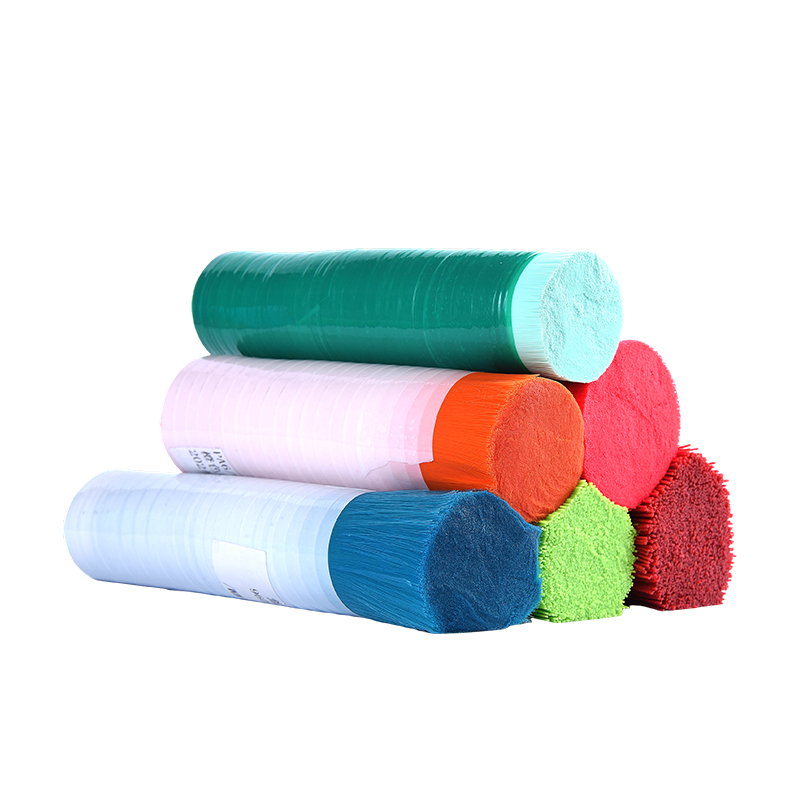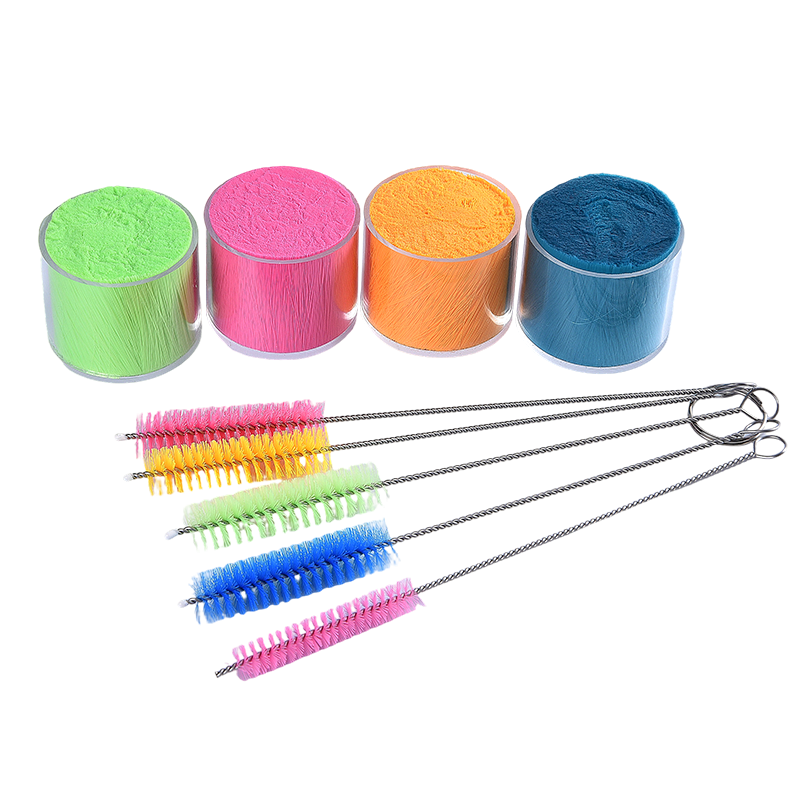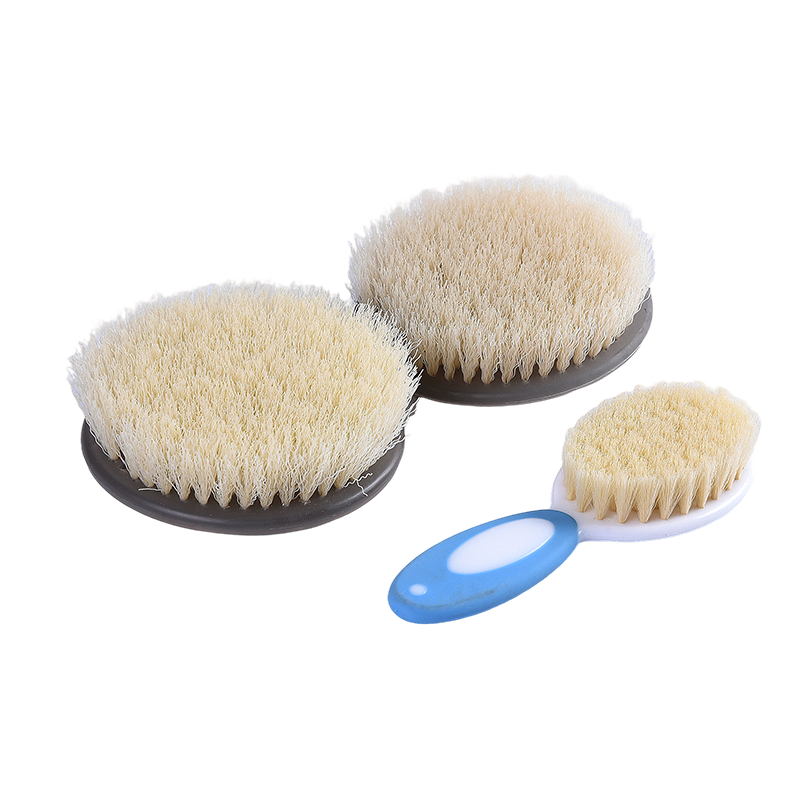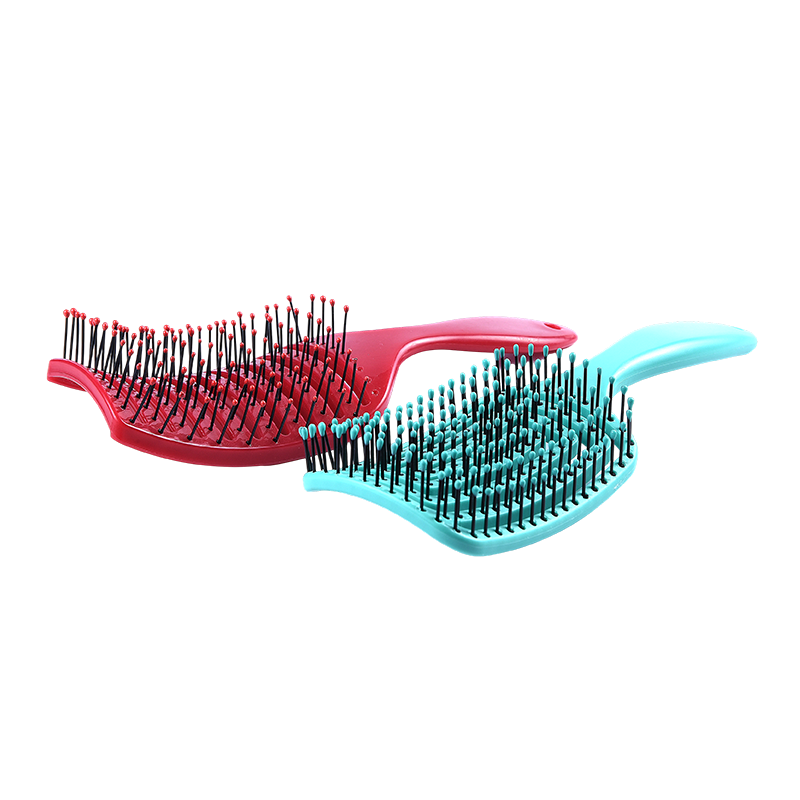What Physical Properties of Nylon PA66 Make It Stand Out as a Brush Filament Material?
Nylon PA66 (Polyamide 66) possesses a set of physical properties that make it a top choice for brush filament in both industrial and household settings. One of the most prominent properties is its high tensile strength. Tensile strength refers to the ability of a material to withstand a pulling force without breaking. Nylon PA66 has a tensile strength significantly higher than many other common brush filament materials, such as polypropylene or polyethylene. In industrial brushes, for example, those used to clean heavy - duty machinery parts or remove tough debris from conveyor belts, the filaments need to withstand strong mechanical forces without snapping. The high tensile strength of Nylon PA66 ensures that the brush filaments can maintain their integrity even under intense use, extending the lifespan of the brush.
Another important physical property is excellent abrasion resistance. Brushes are often used for scrubbing, cleaning, or polishing surfaces, which means the filaments are constantly in contact with and rubbing against various materials. Nylon PA66 has strong resistance to wear and tear. In household brushes, like kitchen scrub brushes used to clean pots and pans with hard surfaces, the filaments can withstand repeated scrubbing without becoming frayed or worn down quickly. In industrial applications, such as metal polishing brushes, the abrasion resistance of Nylon PA66 allows the filaments to effectively polish metal surfaces without losing their shape or effectiveness after a short period of use. This abrasion resistance not only prolongs the life of the brush but also ensures consistent cleaning or polishing performance over time.
Additionally, Nylon PA66 has good elasticity and resilience. Elasticity refers to the ability of a material to return to its original shape after being stretched or deformed, while resilience is the ability to absorb energy and recover from impacts. For brush filaments, this means that even when the brush is pressed hard against a surface or bent during use, the filaments can bounce back to their original shape. In household hairbrushes, for example, the elastic Nylon PA66 filaments can gently detangle hair without breaking or becoming permanently bent. In industrial brushes used for cleaning irregularly shaped objects, the resilience of the filaments allows them to conform to the shape of the object, ensuring thorough cleaning of all surfaces.
How Does Nylon PA66 Brush Filament Perform in Different Environmental Conditions?
The performance of brush filaments in different environmental conditions is crucial, and Nylon PA66 excels in this aspect, making it suitable for a wide range of environments in both industrial and household use. One key environmental factor is temperature resistance. Nylon PA66 has a relatively high melting point (around 260°C) and can maintain its physical properties within a wide temperature range. In household settings, this means that Nylon PA66 brush filaments can be used in hot water (such as in dishwashers or when cleaning with hot soapy water) without melting, warping, or losing their strength. In industrial environments, such as in factories where brushes are used near heat - generating equipment (like in automotive manufacturing plants during the painting or drying process), the filaments can withstand the elevated temperatures without being damaged. This temperature resistance expands the range of applications for Nylon PA66 brush filaments.
Moisture resistance is another important aspect. Unlike some natural materials (such as animal hair) that can absorb moisture, become moldy, or degrade when exposed to water for extended periods, Nylon PA66 is hydrophobic (water - repellent). It does not absorb water, so it remains unaffected by moisture. In household bathrooms, for example, brushes used to clean tiles or bathtubs are constantly exposed to water. Nylon PA66 filaments in these brushes will not become moldy or lose their shape, ensuring long - term use. In industrial settings, such as in marine applications where brushes are used to clean boat hulls or in food processing plants where brushes are frequently washed with water, the moisture resistance of Nylon PA66 prevents the filaments from deteriorating, maintaining the brush's performance and hygiene.
Chemical resistance is also a significant advantage of Nylon PA66 brush filaments in different environmental conditions. They are resistant to many common chemicals found in household and industrial cleaning products, such as detergents, soaps, and mild acids and alkalis. In household kitchens, brushes used to clean greasy pots and pans often come into contact with strong detergents. Nylon PA66 filaments can withstand these detergents without being corroded or degraded. In industrial chemical processing plants, brushes used to clean equipment that comes into contact with mild chemicals can use Nylon PA66 filaments, as they will not react with the chemicals or lose their effectiveness. However, it's important to note that Nylon PA66 may not be resistant to strong oxidizing agents or certain harsh solvents, so it's necessary to select the appropriate brush material based on the specific chemical environment.
What Advantages Does Nylon PA66 Brush Filament Offer in Terms of Longevity and Cost - Effectiveness?
Longevity and cost - effectiveness are important considerations for both industrial and household consumers when choosing brush filaments, and Nylon PA66 delivers on both fronts. In terms of longevity, the combination of high tensile strength, excellent abrasion resistance, and resistance to environmental factors (such as moisture and temperature) ensures that Nylon PA66 brush filaments have a long service life. A household Nylon PA66 kitchen brush can last for several months, even with daily use, whereas a brush made of a less durable material (like polypropylene) may need to be replaced every few weeks. In industrial applications, where brushes are used intensively for long hours each day, Nylon PA66 filaments can last for months or even years, reducing the frequency of brush replacements. This long lifespan means that users do not have to spend time and money on replacing brushes as often, improving efficiency and reducing overall costs.
In terms of cost - effectiveness, although Nylon PA66 brush filaments may have a slightly higher initial cost compared to some other materials, their long lifespan and excellent performance make them a cost - effective choice in the long run. Let's take a household example: a Nylon PA66 kitchen brush may cost 5 and last for 6months,whil eapoly propylene brush may cost 3 but only last for 1 month. Over 6 months, the total cost of using the polypropylene brush would be 18(6brushes×3), which is significantly higher than the $5 cost of the Nylon PA66 brush. In industrial settings, the cost difference is even more pronounced. Industrial brushes are often more expensive, and frequent replacements can add up to large costs. Using Nylon PA66 filaments reduces the number of replacements, resulting in significant cost savings over time. Additionally, the consistent performance of Nylon PA66 brush filaments reduces the risk of poor cleaning or polishing results, which can lead to additional costs (such as reworking a product or replacing a damaged part due to inadequate cleaning).


 English
English русский
русский Türk
Türk










